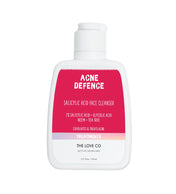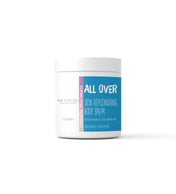Introduction
Peppermint oil is from the peppermint plant. It has benefits and a fresh scent. People in Europe use it for digestion and hair growth. The oil is in perfumes and medicines, among other products. Knowing its uses, benefits, and risks is crucial for daily use, even in pills. Discover more about peppermint oil to enjoy all its advantages.
Key Highlights
- Peppermint oil is derived from peppermint plant and has numerous health benefits.
- It can be used to relieve symptoms of irritable bowel syndrome and problems.
- Peppermint oil is also beneficial for skin care and can promote hair growth.
- It has analgesic effects and anti-inflammatory properties, making it useful for pain relief.
- However, it is important to be aware of possible side effects and interactions with medications.
- Peppermint oil can be found in various forms and should be purchased from reputable sources.
- Peppermint oil is derived from the peppermint plant, which is a cross between water mint and spearmint. It is known for its refreshing scent and cooling effect. Peppermint oil has been used for centuries for its health benefits and is widely used in various applications today.
Understanding Peppermint Oil
Peppermint oil comes from the peppermint plant in North America. It helps with IBS and mental clarity. People use it in cosmetics, aromatherapy, and for digestion. The menthol smell can relieve headaches and stomach aches. Learning about its benefits is important for using it effectively.
Definition and Origin
Peppermint oil is derived from the leaves of the peppermint plant, a blend of water mint and spearmint from Europe and North America. The oil's extraction method is steam distillation to preserve its potent scent and properties. Since ancient Rome, it has been recognized for its health benefits and calming attributes. Initially cultivated in the Mediterranean region for culinary and medicinal purposes, it is now extensively utilized in foods and beverages.
The Multifaceted Uses of Peppermint Oil
Peppermint oil is useful in aromatherapy for stress relief and headaches. It aids digestion, reduces pain, and indigestion. This oil benefits skin by soothing irritation and itching. It boosts hair growth and scalp health. Peppermint oil is used in cosmetics, shampoos, and conditioners for its refreshing scent and effectiveness.
In Aromatherapy and Stress Relief
Peppermint oil is famous in aromatherapy for its energizing smell and stress-relieving properties. Menthol in it can ease tension headaches and induce relaxation. The scent reduces anxiety and boosts mental clarity. Using it with a carrier oil or diffusing creates a calming environment that helps with stress. Inhaling or diffusing peppermint oil promotes emotional well-being and relaxation effectively.

As a Digestive Aid
Peppermint oil helps with digestion by easing issues like indigestion, heartburn, bloating, and gas. It relaxes stomach muscles, as shown in a review article published in the journal Alimentary Pharmacology and Therapeutics. You can take it in water or tea or apply diluted on the stomach for relief. The cooling effect can reduce nausea too. Peppermint oil capsules, especially when combined with caraway oil, are also useful for digestion. However, it may sometimes cause heartburn. If you have ongoing indigestion problems, consult a healthcare provider.
In Skin Care and Cosmetics
Peppermint oil is well-liked in skincare for its cooling effect. It calms and refreshes the skin and is often used as a fragrance in beauty products. When mixed with another oil, it can be used to rejuvenate the skin. Also, it's good for hair health and fights dandruff in hair products. Its germ-killing quality cleans the skin, making it useful in beauty items.
For Hair Health and Growth
Peppermint oil is not only good for hair growth, but it can also be used as a hair loss treatment. It boosts blood flow to the scalp, stimulating hair follicles and helping to prevent hair loss. One study even found that it worked as well as minoxidil, an FDA-approved hair loss treatment. Additionally, peppermint oil reduces scalp inflammation and helps with dandruff, supporting overall hair health. To incorporate peppermint oil into your hair care routine, mix it with jojoba or coconut oil for a scalp massage or add a few drops to your shampoo and conditioner bottles for a refreshing hair wash.
Exploring the Benefits of Peppermint Oil
Peppermint oil has many benefits. It has menthol for pain relief. The anti-inflammatory properties reduce inflammation and joint pain. Peppermint oil boosts mental clarity and energy. It helps with indigestion, acid reflux, tension headaches, and scalp health by improving blood flow. It can repel insects like flies, ants, spiders, and cockroaches naturally due to its strong scent. Using peppermint oil daily can provide various health benefits through applying it on the skin or as a supplement in dietary supplements.
Analgesic Effects for Pain Relief
Peppermint oil can help relieve pain because it contains menthol, which numbs pain receptors. Using diluted peppermint oil on skin may reduce headaches, muscle aches, and joint pain. Inhaling the oil's scent from a diffuser might also ease tension headaches. These effects make peppermint oil popular for natural pain relief.
Anti-inflammatory Properties
Peppermint essential oil is renowned for its potent anti-inflammatory properties. Research suggests that the menthol in peppermint oil may help reduce inflammation in the body. By inhaling or topically applying diluted peppermint oil, individuals may experience relief from inflammatory conditions like muscle aches and joint pain. These anti-inflammatory effects make peppermint oil a popular choice for natural pain management and overall well-being. Incorporating peppermint oil into your daily routine may help alleviate discomfort and promote a healthier inflammatory response in the body.

Impact on Irritable Bowel Syndrome (IBS)
Peppermint oil is known for its benefits in relieving symptoms of irritable bowel syndrome (IBS). The menthol in peppermint oil can help relax digestive muscles, easing pain and spasms. Studies have shown that enteric-coated peppermint oil capsules can be especially effective in reducing bloating, gas, and diarrhea in IBS patients. However, non-enteric coated forms of peppermint oil may actually worsen symptoms of heartburn and nausea. It is important to consult a doctor before using peppermint oil for IBS and to start with a low dose to check tolerance, as effects may vary among individuals.
Enhancing Mental Clarity and Energy
Peppermint oil boosts mental clarity and energy. Its scent enhances focus and alertness, aiding cognitive function. Inhaling or diffusing it fights mental fatigue, ideal for long work or study periods. The oil's refreshing attributes naturally enhance sharpness and productivity.
Navigating the Safety and Side Effects
Possible side effects of peppermint oil can be skin issues and allergies, so do a patch test. For safety, talk to a doctor before use, especially when pregnant, nursing, or with health problems. Avoid eyes and sensitive areas. Peppermint oil can affect some meds; thus, seek advice if on medication. Knowing restrictions is vital to prevent issues, like severe allergic reactions. Always put safety first and be careful with peppermint oil's amount and how you use it.
Possible Skin Irritations
Peppermint oil is safe but can irritate skin, causing itching, redness, or burning. Test a small area first. Mix it with another oil to lower the chance of irritation. If issues persist, stop using it and see a doctor. Use good quality oil to avoid skin problems.

Contraindications and Precautions
Peppermint oil is safe if used correctly, but there are important things to consider. Avoid using it on infants' faces as it may irritate their skin or cause breathing problems. Pregnant or nursing women should seek advice before using peppermint oil. People with gallbladder problems should not use it as it could make their condition worse. Always do a patch test before applying peppermint oil to check for allergies. Use essential oils carefully and follow expert advice.
Interactions with Medications
Peppermint oil might affect some medications' effectiveness, so consult a healthcare provider before using it. Especially if you take drugs like cyclosporine or liver-metabolized medicines; peppermint oil can impact them. It may also alter how certain drugs are absorbed in your body. Understanding these effects is vital for your health and treatment efficacy. Always prioritize safety and seek medical advice when unsure.
Where to Find and How to Select High-Quality Peppermint Oil
When looking for good peppermint oil, choose reliable brands from trusted sources like health stores or online shops. Check if the oil is pure and organic, not mixed with other substances. Test a small amount on your skin first to prevent any allergies. Ask a healthcare provider for help in picking the right oil for you. Avoid cheap oils that might not work well.
Tips for Buying Peppermint Oil
Look for pure organic peppermint oil. Higher menthol is better. Use dark glass bottles. Choose reputable brands with third-party testing. Check for Mentha x piperita. Avoid synthetic ingredients. Buy from trusted brands with good reviews.
Identifying Pure Peppermint Oil
To buy pure peppermint oil, choose brands that explain where it comes from and how pure it is. Pick oils from water mint or spearmint plants. Make sure it's tested by a third party for quality. Pure peppermint oil should smell fresh and have menthol. Avoid oils with added ingredients. You might need to mix it with another oil for safe use. Test a small area of skin before using a lot to avoid negative reactions. Another great way to enjoy the benefits of peppermint is by growing your own peppermint plant at home and using its leaves to make peppermint tea. Simply add five to 10 leaves to a mug, and muddle them before pouring hot water over the leaves and letting it steep for about 10 minutes.
Conclusion
Peppermint oil has many benefits in aromatherapy, digestion, skincare, and more. Be cautious about possible side effects like skin irritations. Seek medical advice, do patch tests, and know contraindications for safety. Choose good quality peppermint oil for effectiveness and purity. Enjoy the holistic perks of peppermint oil while focusing on safety and informed decisions in its use.
Frequently Asked Questions
Can peppermint oil be ingested?
Peppermint oil is good for digestion and breath freshness. Dilute it before using internally and consult a healthcare provider first.
How does peppermint oil relieve headaches?
Peppermint oil helps ease headaches with its cooling effect, relaxing tense muscles. It's a natural pain reliever and may reduce headache intensity. Inhaling its scent promotes relaxation, easing headache discomfort.
Is peppermint oil safe for pets?
Peppermint oil can harm pets, like cats and dogs, if they eat it or touch it. This may cause health problems. To protect pets, avoid exposing them to peppermint oil.
How often can you apply peppermint oil to the skin?
Peppermint oil is safe for skin use 2-3 times a day. Do a patch test first. Too much may irritate your skin. Mix with carrier oil before applying.








